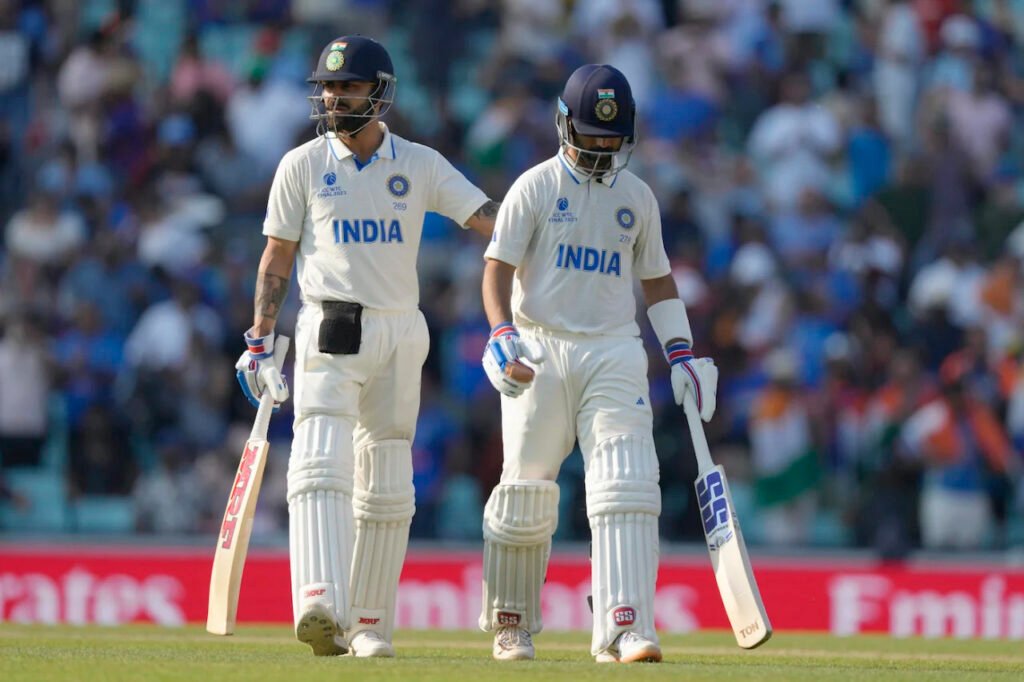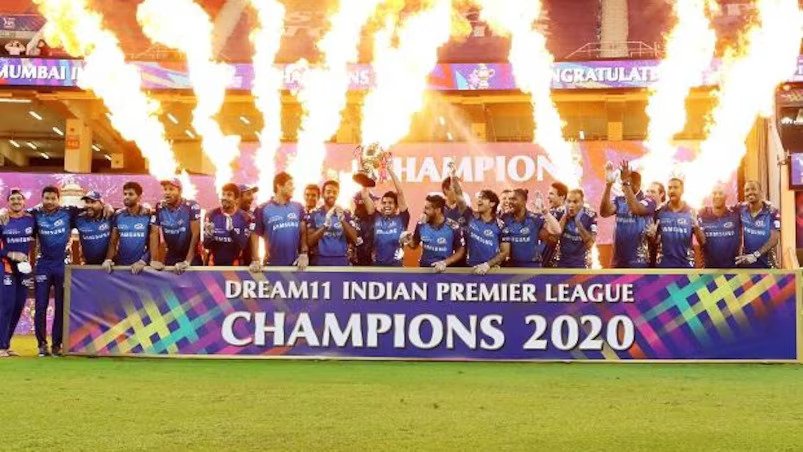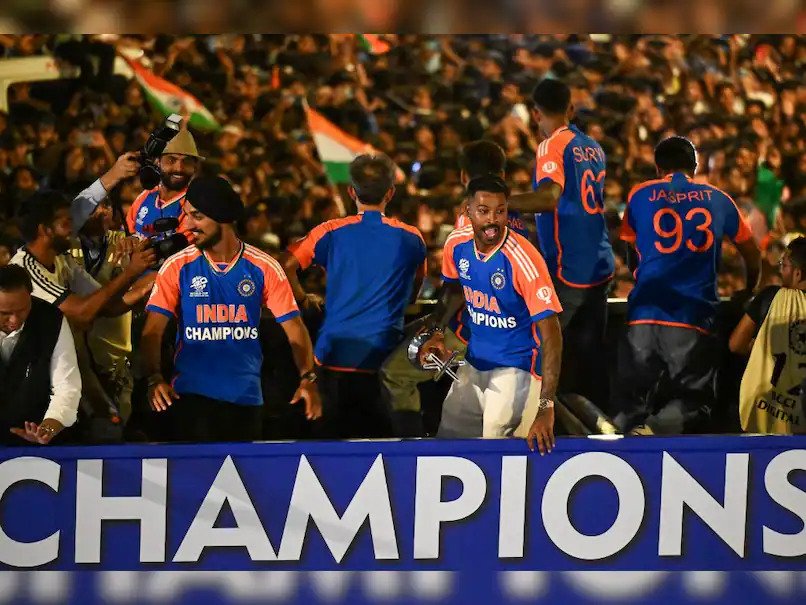Australia emerged victorious in the World Test Championship, claiming a resounding victory against India.
They won the championship with seven wickets in the opening session of day five, always finishing ahead of India in the finale.

Australia defeated India 296 (Rahane 89, Thakur 51, Cummins 3-83) and 234 (Kohli 49, Lyon 3-41, Boland 3-46) by 209 runs with 469 (Head 163, Smith 121, Siraj 4-108) and 270 for 8 dec (Carey 66, Jadeja 3-58).
Australia eventually broke through to win the World Test Championship for the first time, although India battled valiantly for six hours, beginning on the third day, to give themselves some hope on the last day. Australia was the better team in the circumstances in England, where they will now play the hosts in The Ashes, despite India having defeated Australia twice in the last four Test series—two in Australia and two in India.
Though they had fallen so far behind on the first two days that even on the fifth they had only a glimmer of hope, India proved on days three and four why they have been the best Test side since the World Test Championship began as they continued pressing Australia to fight back with their best. I hoped it remained that way, especially after the pitch appeared to be dead on the fourth evening.
However, Scott Boland delivered the kind of performance one expects from a winner on the fifth morning. With seven wickets remaining, India needed 280 to start the day, but the partnership between Ajinkya Rahane and Virat Kohli at the fourth wicket was already worth 71. Boland delivered the sucker ball fuller and wider in the seventh over of the day, but he remained unrelenting with his length and line. At second slip, Kohli attempted a drive, but a diving Steven Smith ate up the edge.
With a brilliant delivery to a left-hand batter that angled in from outside the stumps, pitched on a length, seaming against the angle, and took the edge through to the keeper, Boland dismissed Ravindra Jadeja in the same over.
Even after being India’s top batsman in the first innings, Rahane persisted, putting on 33 for the sixth wicket with KS Bharat. However, Rahane eventually gave up on a Mitchell Starc length ball with a careless drive away from the body. For the careless Starc, it was the first wicket; whether or not he plays in the opening Ashes Test may depend on Josh Hazlewood’s fitness.
With Rahane out of the picture, it was just a matter of time. Nathan Lyon trapped Shardul Thakur leg before wicket from around the wicket, Umesh Yadav gloved a short ball from Starc, and Lyon removed the final two to end the match prior to lunch.
Australia is the only team to have won at least one of the following ICC trophies: five ODI World Cups, two ODI Champions Trophies, one T20 World Cup, and now the World Test Championship. This was their eighth ICC championship.
Also Read: New Zealand Clinches Historic Test World Championship Victory Over India (2019-21 Circle)
Ashwin On His Omission
In the recent WTC final, R Ashwin, despite being the No. 1 Test bowler globally, found himself excluded from India’s playing XI, raising questions about team selection and strategies. This decision sparked discussions about whether India should have included Ashwin in the lineup, especially given the spin-friendly conditions at The Oval.

Speaking to the Indian Express and Hindu, Ashwin expressed his perspective on the situation, viewing it as a “stumbling block” that he’s prepared to move past. He emphasized the importance of facing challenges and learning from setbacks, highlighting his readiness to bounce back stronger.
Ashwin acknowledged his desire to contribute to India’s success, citing his previous performances and impact on overseas matches. Despite his disappointment at not playing, he recognized the team’s decision and the strategic considerations behind it, particularly in terms of pitch conditions and match dynamics.
Reflecting on his mindset, Ashwin stressed the need to focus on personal growth and not be overly concerned with external judgments.
Ashwin expressed confidence in his abilities and a proactive approach to improving his game, emphasizing a positive and relaxed outlook towards challenges.
This incident also reignited discussions about Ashwin’s role in the team and his past performances in England. While he has showcased his bowling prowess in previous tours, including the first WTC final against New Zealand, team dynamics and tactical choices have influenced his playing opportunities.
Despite the disappointment of missing out on the WTC final, Ashwin highlighted his growth and maturity, emphasizing a balanced and resilient mindset crucial for continued success in international cricket.
Australia departs the UK without a gold star but with the Urn and the Mace
In the realm of cricketing triumphs, Australia’s recent success in the Ashes series against England stands out as a significant achievement. Despite facing formidable challenges on English soil, Pat Cummins’ team managed to secure victories in three out of six Tests, a feat that is not to be underestimated given the historical context of Ashes battles.

The tour showcased Australia’s resilience and prowess, particularly highlighted by their consecutive wins against India and subsequent dominance in the Ashes series. These victories not only secured their position as the top Test team globally but also reaffirmed their competitive edge in the face of strong opposition.
However, amidst the celebrations and accolades, there were moments of tension and uncertainty. Nathan Lyon’s pivotal injury during a crucial phase of the series left a noticeable impact on Australia’s performance. This, coupled with England’s strategic reshuffling due to injuries in their squad, added layers of complexity to the matches.
Despite these challenges, Australia’s determination was evident, especially during Mitchell Marsh’s remarkable century in Leeds, which revitalized their campaign. The series witnessed tight contests and narrow margins, showcasing the competitive spirit of both teams.
The final showdown at The Oval reflected the intensity and unpredictability of Test cricket. Although rain interruptions and missed opportunities affected the outcome, the series ultimately ended in a 2-2 draw, a fair reflection of the teams’ performances.
Looking ahead, Australia faces transitions in its lineup, with veteran players like David Warner and Usman Khawaja possibly stepping back from international cricket. This transition period presents opportunities for emerging talents like Cameron Green to step into key roles and contribute to Australia’s future successes.
In conclusion, Australia’s Ashes triumph, while falling short of an outright series win, underscores their resilience, strategic depth, and competitive spirit. As they navigate through transitions and new challenges, the legacy of this era will be defined not just by victories but by the resilience and adaptability displayed on the field.





